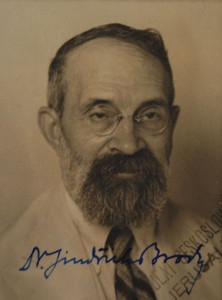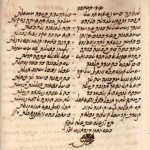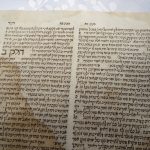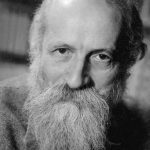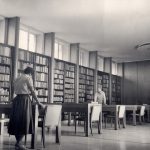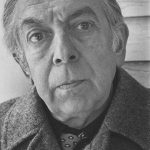The Schocken Institute for Hebrew Poetry
Schocken purchased the now famed “Schocken 37” manuscript in 1928. The manuscript proved to be a literary treasure trove, containing more than 3,000 medieval Hebrew poems, many of them previously unknown. In order to curate and publish modern editions of this body of literature, Schocken decided to open a research institute devoted to Medieval Hebrew poetry. As director of the institute he chose Henrik (Haim) Brody, the chief Rabbi of Prague and a prominent Medieval Hebrew poetry scholar. Brody, who was keenly interested to work on the manuscript, accepted the offer and moved to Berlin. Together with Brody, Schocken hired Menahem Zulay and Hayyim (Jefim) Schirmann. They were joined by Abraham Meir Habermann, who later became the chief librarian of the Schocken Library in Jerusalem.
The Schocken Institute for Hebrew Poetry was opened in Berlin in 1930. Schocken focused his attention on acquiring original manuscripts and prints of Hebrew poetry. In addition, he collected numerous photocopies of materials kept in libraries in Europe and around the world. Some of the copies made for the institute from libraries in Berlin, Frankfurt and Warsaw are now the lone survivors of the original manuscripts that were lost during World War II. When Schocken moved his collections to Palestine in 1934, the institute and its researchers moved there as well. These researchers became the prominent scholars of Medieval Hebrew poetry in Israel, establishing this field of study in the Israeli academy.
